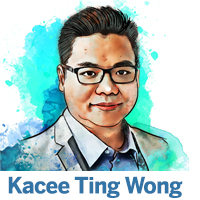The 2024 electoral reforms aimed at depoliticizing the Legislative Assembly of the Macao Special Administrative Region put into practice the principle of “patriots administering Macao”, which is at the heart of the “one country, two systems” framework and fundamental to safeguarding national sovereignty, security and development interests as well as Macao’s long-term prosperity and stability.

 Ensuring “patriots administering Macao” is the strongest of all justifications for the disqualification of those who are judged to be disloyal to the Macao SAR from participating in its elections.
Ensuring “patriots administering Macao” is the strongest of all justifications for the disqualification of those who are judged to be disloyal to the Macao SAR from participating in its elections.
The SAR’s election watchdog thus has rightly declared that 12 candidates from two electoral lists are not qualified for the September Legislative Assembly election for failing to bear allegiance to the SAR and uphold the Basic Law.
The forthcoming election, which is scheduled to be held on Sept 14, will choose new members of the Legislative Assembly. Fourteen members will be directly elected by all electorates, and 12 indirectly elected.
Under the new election rules introduced in 2024, mirroring those adopted in the Hong Kong Special Administrative Region earlier, all candidates must be screened before validating their nomination to determine whether they are patriots. All candidates are required to uphold the Basic Law and pledge allegiance to the Macao SAR.
As a matter of fact, since 2021, the Macao SAR authorities have given top priority to the loyalty test. In the election of 2021, 21 candidates on six electoral lists were disqualified because they had failed to uphold the Basic Law and bear allegiance to the Macao SAR.
Seng Ioi-man, chairman of the Electoral Affairs Commission for the Legislative Assembly Election, stated at a press conference earlier this month that the decision to strip the candidacy of the aforementioned 12 was made in accordance with the Electoral Law for the Legislative Assembly and based on an opinion letter from the Macao SAR’s Committee for Safeguarding National Security, which is supervised by Chief Executive Sam Hou-fai.
Ensuring “patriots administering Macao” is the strongest of all justifications for the disqualification of those who are judged to be disloyal to the Macao SAR from participating in its elections
The committee conducted eligibility reviews of candidates in accordance with the law. The Electoral Affairs Commission expressed support for these findings, and, in strict compliance with the Electoral Law, ruled that the relevant candidates did not meet the eligibility requirements.
It is worthy of note that the law expressly provides that no objection can be raised to the decision of the committee and no appeals can be made against its decision.
The rationale is that the committee performs a political function confidentially, and therefore its relevant screening mechanism should not be made public, otherwise it could raise national security risks.
Moreover, the law provides that political acts, relating to political functions, are not subject to judicial appeal. Since the introduction of electoral reforms, the Macao SAR has on balance met the principle of “patriots administering Macao”.
Looking at China through a distorted lens, some Western politicians and commentators have frequently weaponized human-rights notions to discredit the Hong Kong and Macao SARs’ election systems by distorting the reasonable and necessary screening tests adopted by the two SARs in their legislative elections.
When 12 candidates were disqualified from running in the legislative election in Hong Kong in 2020, the last British governor of Hong Kong, Chris Patten, viciously attacked the decision, calling it “an outrageous political purge of Hong Kong’s democrats”.
He deliberately distorted the fact that the 12 people were disqualified not for their political labels but for treacherous acts, including calling for foreign governments to sanction Beijing and Hong Kong, and pledging to block government bills if they won a majority. He also deliberately dressed up the Anglo-Saxon version of human rights with the disguise of universalism.
But to the disappointment of Patten and his anti-China cohort, the global community does not buy their biased, malicious and unsubstantiated platitudes and allegations.
Lei Wun-kong is president of the Association of Legal Promotion of Macao and a senior consultant at the Chinese Dream Think Tank.
Kacee Ting Wong is a barrister, part-time researcher at the Shenzhen University Hong Kong and Macao Basic Law Research Center, chairman of the Chinese Dream Think Tank and a district councillor.
The views do not necessarily reflect those of China Daily.


